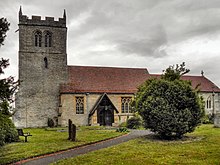A mortgage is a legal instrument of the common law which is used to create a security interest in real property held by a lender as a security for a debt, usually a mortgage loan. Hypothec is the corresponding term in civil law jurisdictions, albeit with a wider sense, as it also covers non-possessory lien.
Torrens title is a land registration and land transfer system, in which a state creates and maintains a register of land holdings, which serves as the conclusive evidence of title of the person recorded on the register as the proprietor (owner), and of all other interests recorded on the register.
In finance, a security interest is a legal right granted by a debtor to a creditor over the debtor's property which enables the creditor to have recourse to the property if the debtor defaults in making payment or otherwise performing the secured obligations. One of the most common examples of a security interest is a mortgage: a person borrows money from the bank to buy a house, and they grant a mortgage over the house so that if they default in repaying the loan, the bank can sell the house and apply the proceeds to the outstanding loan.

The Land Registration Act 2002 is an Act of the Parliament of the United Kingdom which repealed and replaced previous legislation governing land registration, in particular the Land Registration Act 1925, which governed an earlier, though similar, system. The Act, together with the Land Registration Rules, regulates the role and practice of HM Land Registry.

In law, an equitable interest is an "interest held by virtue of an equitable title or claimed on equitable grounds, such as the interest held by a trust beneficiary". The equitable interest is a right in equity that may be protected by an equitable remedy. This concept exists only in systems influenced by the common law tradition, such as New Zealand, England, Canada, Australia, and the United States.
The Home Equity Theft Prevention Act is a New York State law passed on July 26, 2006, to provide homeowners of residential property with information and disclosures in order to make informed decisions when approached by persons seeking a sale or transfer of the homeowner's property, particularly when homeowners are in default on their mortgage payments or the property is in foreclosure.
The vast majority of states in the United States employ a system of recording legal instruments that affect the title of real estate as the exclusive means for publicly documenting land titles and interests. The record title system differs significantly from land registration systems, such as the Torrens system, that have been adopted in a few states. The principal difference is that the recording system does not determine who owns the title or interest involved, which is ultimately established through litigation in the courts. The system provides a framework for determining who the law will protect in relation to those titles and interests when a dispute arises.

Williams & Glyn's Bank v Boland [1980] is a House of Lords judgment in English land and trusts law on an occupier's potentially overriding interests in a home.

City of London Building Society v Flegg[1987] UKHL 6 is an English land law case decided in the House of Lords on the relationship between potential overriding interests and the concept of overreaching.
Easements in English law are certain rights in English land law that a person has over another's land. Rights recognised as easements range from very widespread forms of rights of way, most rights to use service conduits such as telecommunications cables, power supply lines, supply pipes and drains, rights to use communal gardens and rights of light to more strained and novel forms. All types are subject to general rules and constraints. As one of the formalities in English law express, express legal easements must be created by deed.
Re Bank of Credit and Commerce International SA [1998] AC 214 is a UK insolvency law case, concerning the taking of a security interest over a company's assets and priority of creditors in a company winding up.

English land law is the law of real property in England and Wales. Because of its heavy historical and social significance, land is usually seen as the most important part of English property law. Ownership of land has its roots in the feudal system established by William the Conqueror after 1066, but is now mostly registered and sold on the real estate market. The modern law's sources derive from the old courts of common law and equity, and legislation such as the Law of Property Act 1925, the Settled Land Act 1925, the Land Charges Act 1972, the Trusts of Land and Appointment of Trustees Act 1996 and the Land Registration Act 2002. At its core, English land law involves the acquisition, content and priority of rights and obligations among people with interests in land. Having a property right in land, as opposed to a contractual or some other personal right, matters because it creates priority over other people's claims, particularly if the land is sold on, the possessor goes insolvent, or when claiming various remedies, like specific performance, in court.
A glossary of land law contains mostly middle English concepts, which are often found in older judgments, and refer to obsolete rights or remedies.

The Land Charges Act 1972 is a UK act of Parliament that updates the system for registering charges on unregistered land in England and Wales. It repealed and updated parts of the Land Charges Act 1925 and other legislation affecting real property.

Breskvar v Wall, was an Australian court case, decided in the High Court on 13 December 1971. The case was an influential decision in property law, specifically the effect of obtaining title by registration under the Torrens title system, the application of the fraud exception to the principle of indefeasibility and whether Frazer v Walker should be followed in Australia. The High Court followed Frazer v Walker in upholding that a bona fide purchaser for value without notice of the fraud obtained an effective title even though the person they purchased from was registered by fraud against the original owner.

National Provincial Bank Ltd v Ainsworth [1965] is an English land law and family law case, concerning the quality of a person's interest in a home when people live together, as well as licenses in land.
Mortgages in English law are a method of raising capital through a loan contract. Typically with a bank, the lender/mortgagee gives money to the borrower/mortgagor, who uses their property/land/home as security that they will repay the debt and any relevant interest. If the mortgagor fails to repay, then the mortgaged property which has been used as security may be subject to various mortgagee remedies allowing them to retrieve the debt. Mortgages are an important part of English land law and property law. These concern, first, the common law, statutory and regulatory rules to protect the mortgagor at the time of concluding the mortgage agreement. Second, English law defines and restricts the process for taking possession of property in the event of default. Third, it places duties on mortgagees on the price it achieves when selling property.
The South African law of lease is an area of the legal system in South Africa which describes the rules applicable to a contract of lease. This is broadly defined as a synallagmatic contract between two parties, the lessor and the lessee, in terms of which one, the lessor, binds himself to give the other, the lessee, the temporary use and enjoyment of a thing, in whole or in part, or of his services or those of another person; the lessee, meanwhile, binds himself to pay a sum of money as compensation, or rent, for that use and enjoyment. The law of lease is often discussed as a counterpart to the law of sale.

Registered land in English law accounts for around 88 per cent of the total land mass. Since 1925, English land law has required that proprietary interests in land be registered, except in cases where it is necessary to protect social or family interests that cannot reasonably be expected to be registered. English law also runs a parallel system for around 12 per cent of land that remains unregistered.

Pilcher v Rawlins (1872) 7 Ch App 259 is a decision of the English Court of Appeal in relation to the rights of the beneficiaries under a trust against a bona fide third party purchaser for value of the trust property.









